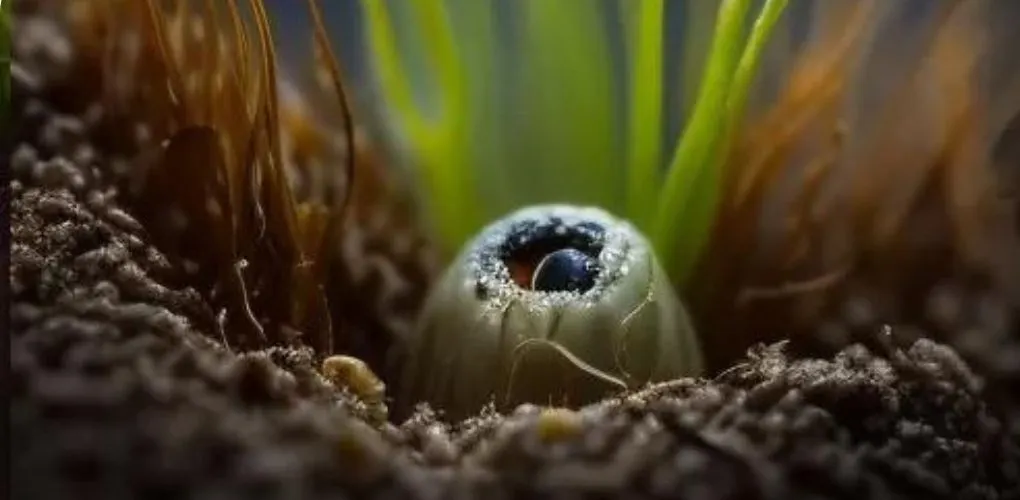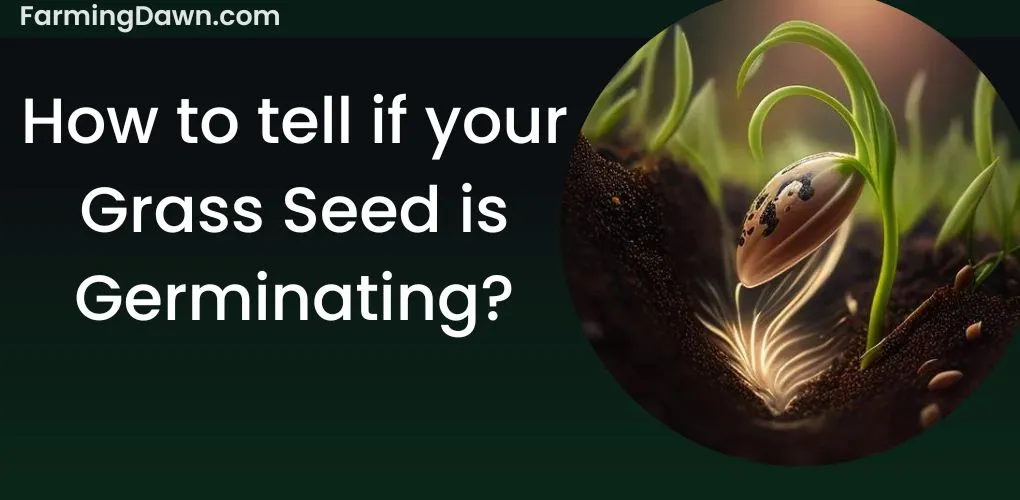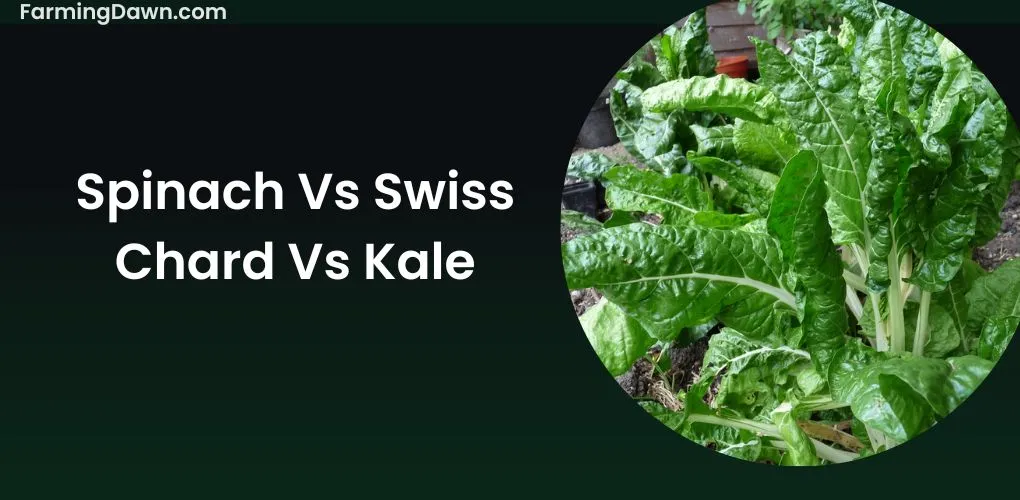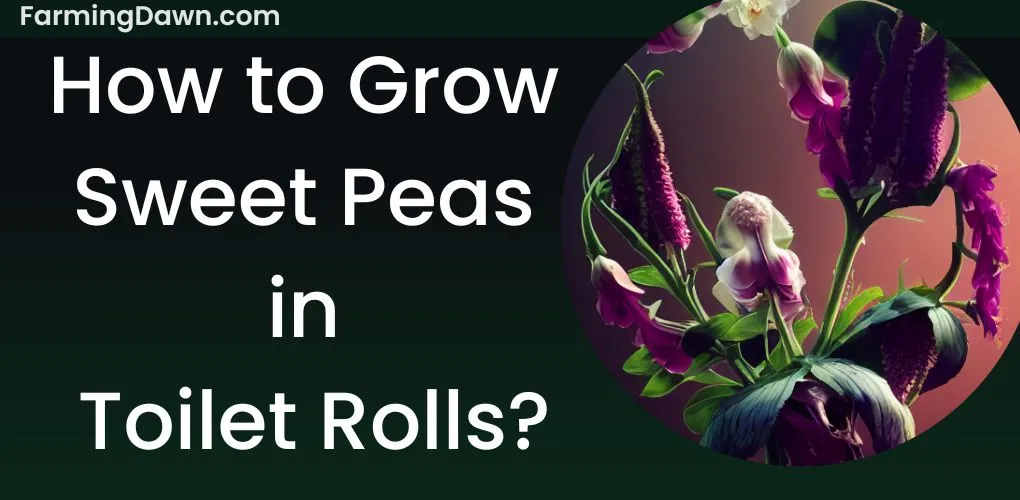Knowing how to tell if grass seed is germinating is essential for any lawn enthusiast. Establishing a fresh, lush lawn can be exciting and fulfilling, but it can also be irritating if you’re unsure whether your grass seed is taking root.
It gets hard to wait once you’ve invested time and money into your yard project. However, I’m about to provide you with a handful of information with expert insight so that you may easily ascertain whether your grass seed is germinating and be on your way to a lovely, lush lawn.
How To Tell If Grass Seed Is Germinating?
Before I start, I want to give you an overview of how germination happens, and this process is not limited only to grass seed germination. By understanding this you can have a better overview of the whole concept.
Understanding Germination
The process by which a plant emerges from a seed is called Germination. This phase of a plant’s life cycle is vital because it lays the groundwork for future growth and development. Gardeners, farmers, and anyone interested in plant growth should understand the germination process.
When a seed takes up water and expands, Germination starts. The enzymes that break down the food stored inside the seed are released, giving the young plant the nutrition and energy it needs to flourish.
The embryo inside the seed starts to develop, and a root starts to sprout as the seed continues to absorb water.
How to tell if your grass seed is germinating
Any lawn enthusiast who enjoys planting grass seeds will find it thrilling. But if the grass seed doesn’t germinate, the hope of a lush lawn can swiftly go away. The good news is that there are several symptoms that your grass seed is germinating, and we will discuss the most prevalent ones.
The Emergence of Small Shoots
The emergence of tiny shoots commonly referred to as seedlings are the earliest symptom of Germination.
Depending on the type of grass and the surrounding environment, these shoots will become evident in a few days to a few weeks after planting. If you observe seedlings poking through the ground, your grass seed is likely germinating successfully.
Manifestation of Root Systems
As the seedlings mature, their root systems will expand, securing them to the soil. The root systems will be evident as growing white or yellow threads in the soil.
This indicates that the grass seed is taking root in the ground; during the next few weeks, it will expand and spread.
Higher Moisture
Seeds undergoing Germination need moisture to grow; as they do so, they take moisture from the soil. The soil will become slightly damper than before planting due to the added moisture.
Your grass seed is germinating if you notice that the soil is a bit moister than before planting.
Temp. Changes in the Soil
Soil temperature affects grass seed germination. The soil’s temperature will gradually rise as the seed starts to sprout.
A soil thermometer, readily available at most garden centers, can measure the soil’s temperature. It’s a good indication that your grass seed is in Germination when you detect a rise in soil temperature.
Grass Seed Germination Process For Lush Lawn
Even if grass seed germination can be a little challenging, with the correct care and techniques, it is possible to grow a stunning and healthy lawn.
Here is a step-by-step instruction manual to assist you in comprehending the Germination of grass seeds and creating the lawn of your dreams.
Preparing the soil
The initial step in germinating grass seed is soil preparation. You must clear the area of any weeds, rocks, and rubbish and ensure that the soil is loose and well-aerated.
Compost, fertilizer, or other organic matter should be added to the soil to aid in moisture retention and supply nutrients for the grass seed.
Sowing the seed
Sowing the seed is the next phase. Either by hand or using a spreader for seeds, this is possible. Aim to evenly distribute the seed across the area you want to cover. To avoid overpopulation and sluggish growth, avoid dispersing the seed too thickly.
Watering
It’s crucial to give the seed continuous watering once it has been sowed. The soil has to be regularly moist but not soggy. Before the seed gets an opportunity to develop, excessive watering can cause it to decay.
Light
Grass seeds require light to sprout, so keep the space well-lit. It is ideal for removing any mulch or other things that cover the soil if there is any so that the seed can get enough light.
Monitoring and upkeep
Monitoring and maintenance are crucial during the germination phase to ensure that the soil is continually moist and that the seeds are sprouting. If weeds or other undesirable plants begin to develop, eliminate them immediately to prevent competition for resources.
Mowing
Once the grass has grown sufficiently to be mowed, it’s critical to begin doing so often. This will support growth and keep it healthy.
What To Do If Grass Seed Doesn’t Grow?
The intricate process of grass seed germination is influenced by several variables. These elements are essential in deciding whether grass seeds will develop into strong plants.
Factors affecting Germination
The most important elements that influence grass seed germination are listed below.
- Soil moisture
- One of the essential components influencing grass seed germination is soil moisture. The soil must be consistently moist but not drenched. The seeds won’t grow if the soil is too dry, and they can rot if the soil is too wet. To promote ideal Germination, it’s critical to maintain a balance between soil moisture and air.
- The soil temperature
Most grass seed species like soil temperatures of 60 to 70 °F. Germination may take longer if the soil is too cold, and it may not happen if it is too hot.
- Light
Light is necessary for grass seeds to germinate, but too much direct sunshine might dry the seeds out and stop them from sprouting. The best place to sow grass seeds is in areas with lots of indirect light.
- Seed depth
Another element influencing germination is the depth at which seeds are sown. Generally, grass seeds should be sown between 1/4 and 1/2-inch-deep, but species-specific planting depths may apply. It’s crucial to adhere to the suggested planting depth listed on the seed packet.
- Type of soil
Scandalized soil may not hold enough moisture, whereas clay soil may be overly compacted and dense. Thus, the type of soil also affects the germination process. The greatest soil for grass seed germination is one that has a good ratio of sand, clay, and organic matter.
- Seed quality
Germination is also influenced by the seed’s quality. To guarantee that the seed stays fresh and viable, it’s critical to buy it from a dependable supplier and store it appropriately.
What Does Grass Seed Look Like When It Germinates?
Grass seed sprouts into tiny sprout with a single stem and root as it starts to grow. The root is often white and fibrous, whereas the shoot is normally green and lengthy.
The sprout will keep growing until it eventually pierces the soil’s surface and reaches for the sun. It’s exciting to watch grass seed germinate since it goes from a seemingly lifeless seed to a flourishing plant in a couple of days.

Will Grass Seed Germinate On Top Of Soil?
Grass seeds can germinate on top of soil if the soil is moist and the seeds are exposed to sunlight and air. Moisture must be absorbed for the seed to start the germination process. It will start to sprout and grow once the seed has absorbed enough moisture.
There are many things to think about if you plan to plant grass seed on top of the dirt. The initial step is to confirm that the soil is sound and has the right pH balance.
The soil should be cleared of weeds and other plants that might compete with the new grass for nutrients and moisture. The soil also has to be well-drained.
The next step is to spread the seed out equally over the soil. Doing this will make it feasible to ensure that every seed has sufficient room to grow and that grass covers the entire soil surface. Either your hands or a seed spreader can be used to disseminate the seed. I hope this answers your question, Will seeds germinate on top of soil?
Will Grass Seed Grow Without Watering?
Moisture is necessary for grass seeds to sprout and grow. All grass seeds will struggle to grow without enough water, while certain grass types are more drought-tolerant than others.
The seed will stay dormant without water since it cannot take in the moisture and nutrients it needs from the soil. You should water the grass seed regularly, especially in hot, dry weather, to ensure optimal development.
This will aid in maintaining soil moisture and give the seed the ideal environment for Germination. Regular watering will help to promote lush, healthy grass, combined with adequate soil preparation and weed control.
How To Make Grass Seed Germinate Faster?
Above I have already explained the complete process to grow grass on your lawn successfully, but you can also add these few strategies to speed up the process and get your lawn looking beautiful in no time.
Start with top-notch seed
The first step to quick grass germination is to select a top-notch seed. Search for a disease-resistant seed that contains a high proportion of pure seed and a low proportion of weed seed.
Soil preparation
The soil should be cleared of weeds, rocks, or other objects. By routinely watering the soil, you can ensure it drains well and has enough moisture. Additionally, you can increase soil fertility by adding compost or other organic waste.
Utilize starter fertilizer
A starter fertilizer is a specifically prepared fertilizer containing high quantities of phosphorus necessary for seed germination. Before you sow the seed, fertilize the soil as directed by the manufacturer.
Cover the seed
A thin layer of soil, mulch, or straw placed over the seed will assist in keeping it moist and safe from birds and other animals.
Consider using a lawn roller
A lawn roller is a heavy cylinder that can gently press the seed into the soil, boosting soil-to-seed contact and promoting quicker Germination.
Be patient since grass seeds can still take many weeks to germinate despite your best efforts. Be patient, and remember to keep the soil moist and weed-free. You can achieve your goal of having the lawn of your dreams with perseverance and work.
How to tell if grass seed is germinating: Final Thoughts
I hope that now you have enough knowledge in hand to properly germinate your grass seeds. Knowing how to tell if grass seed is germinating can be rewarding if you plan to have a lush green lawn. Hope you liked this article.
There are different kinds of grass seeds, and each has its germination process and time to bloom. Read my other articles to learn more:
- Vegetables that grow above the ground.
- How to tell if tomato flower is pollinated?
- Can you compost potatoes?





